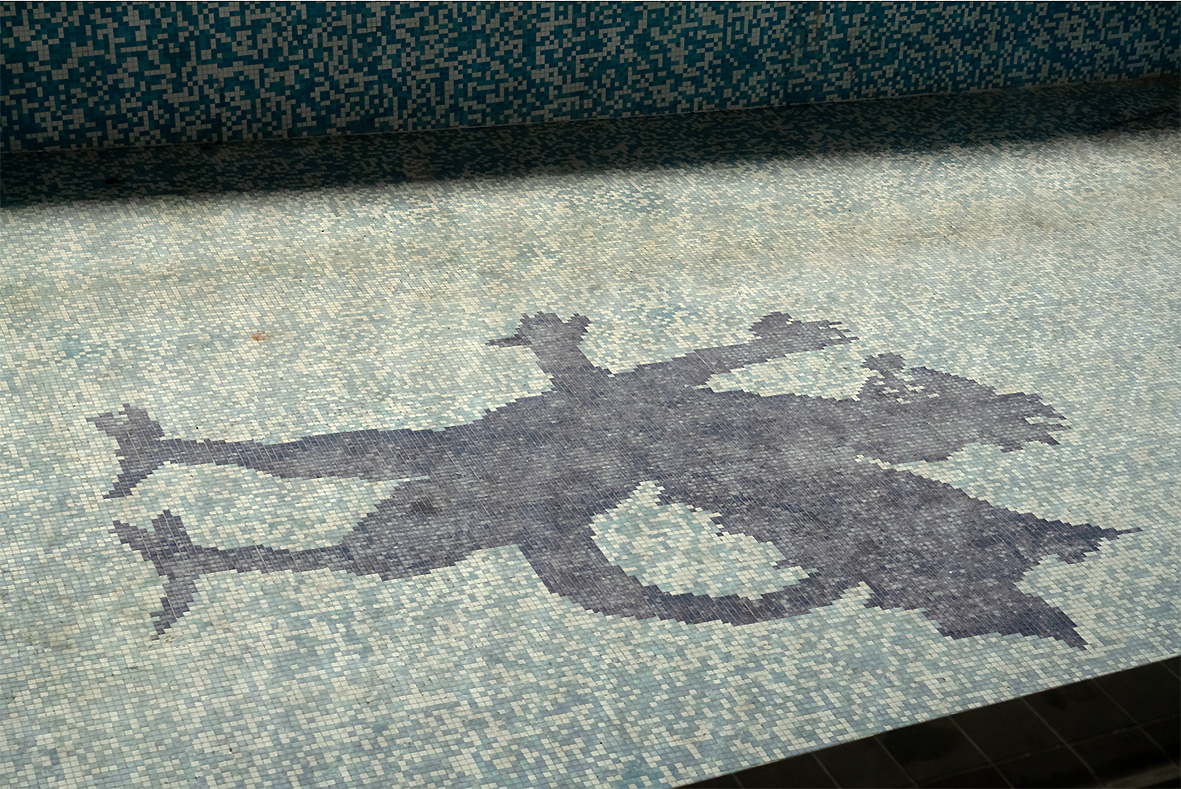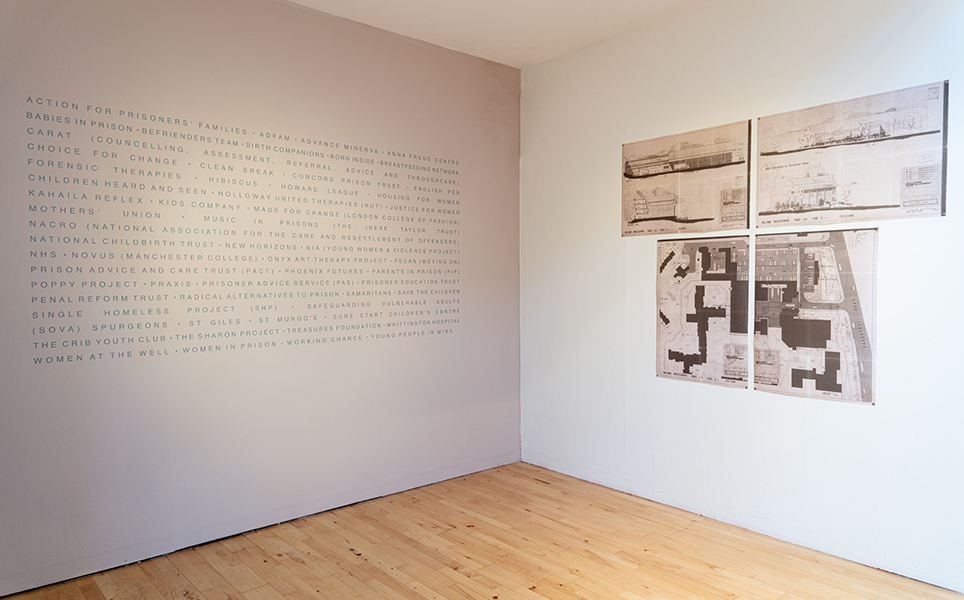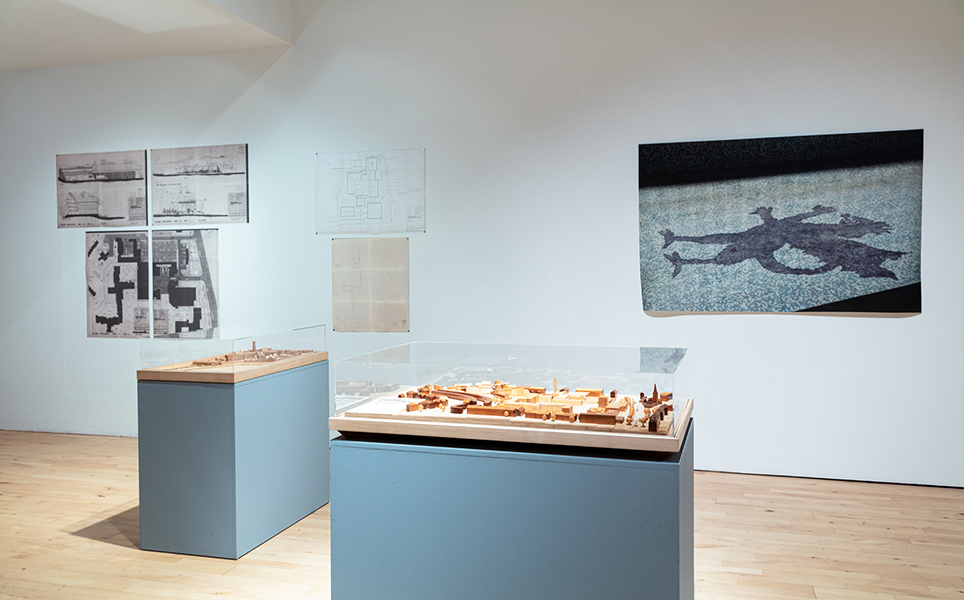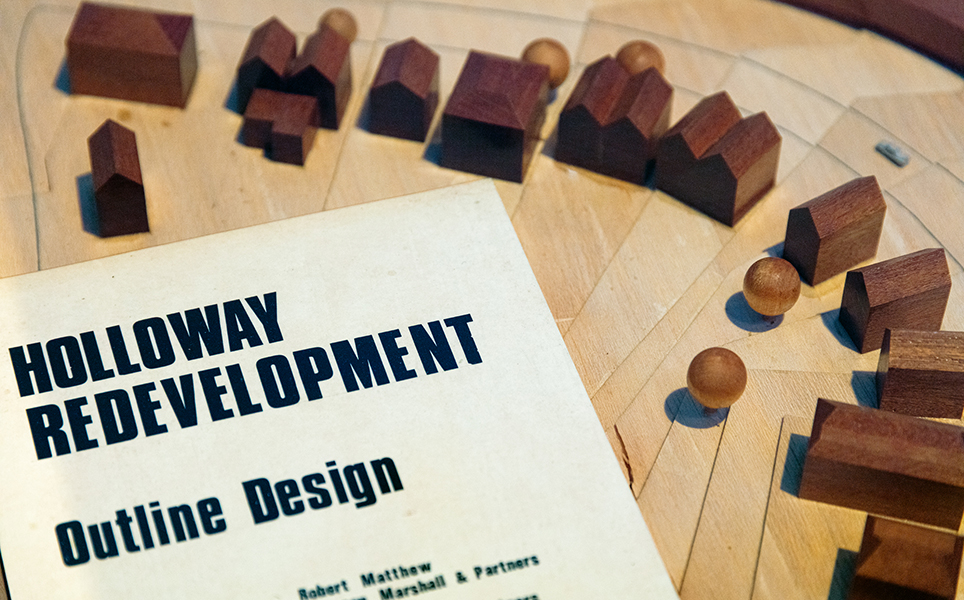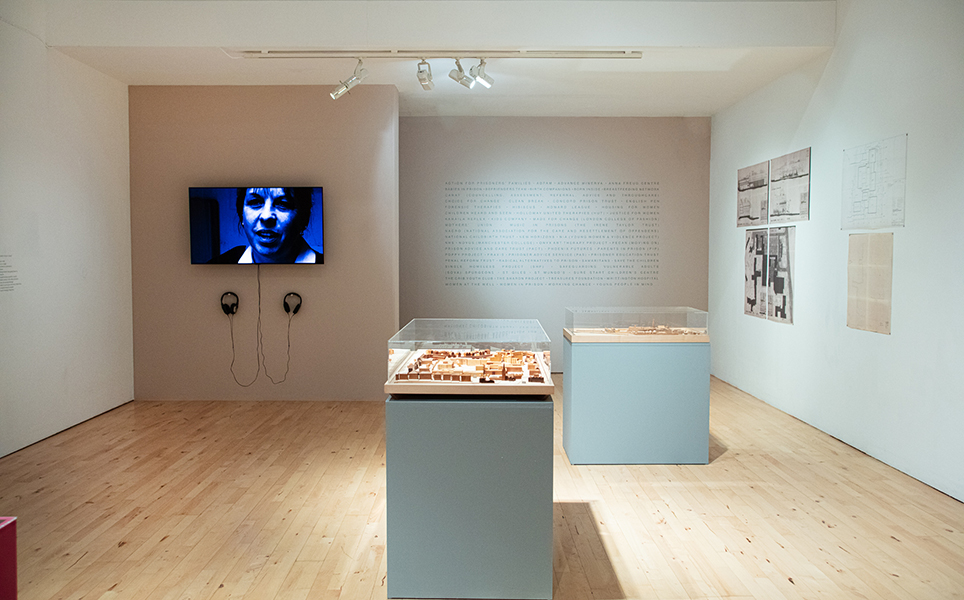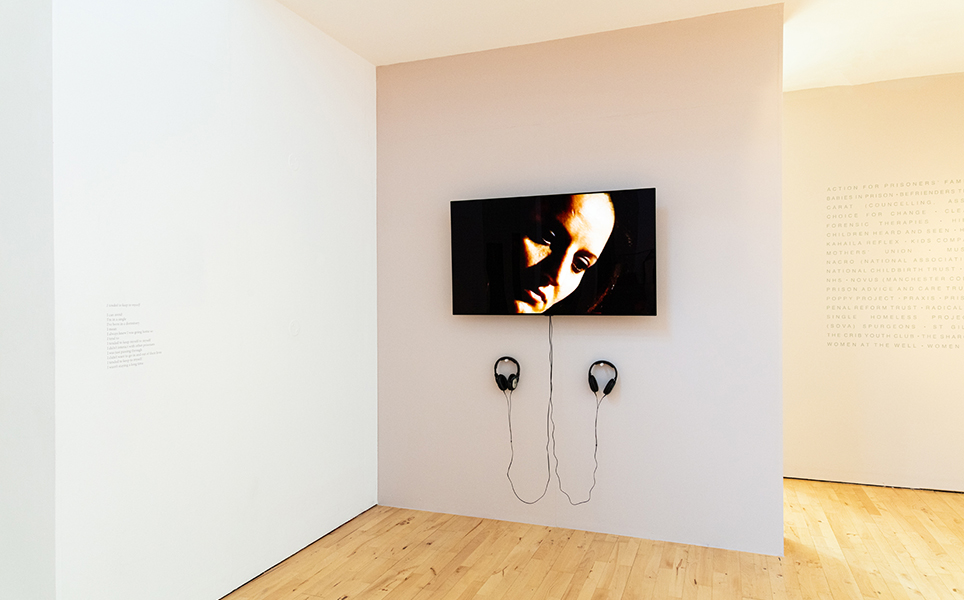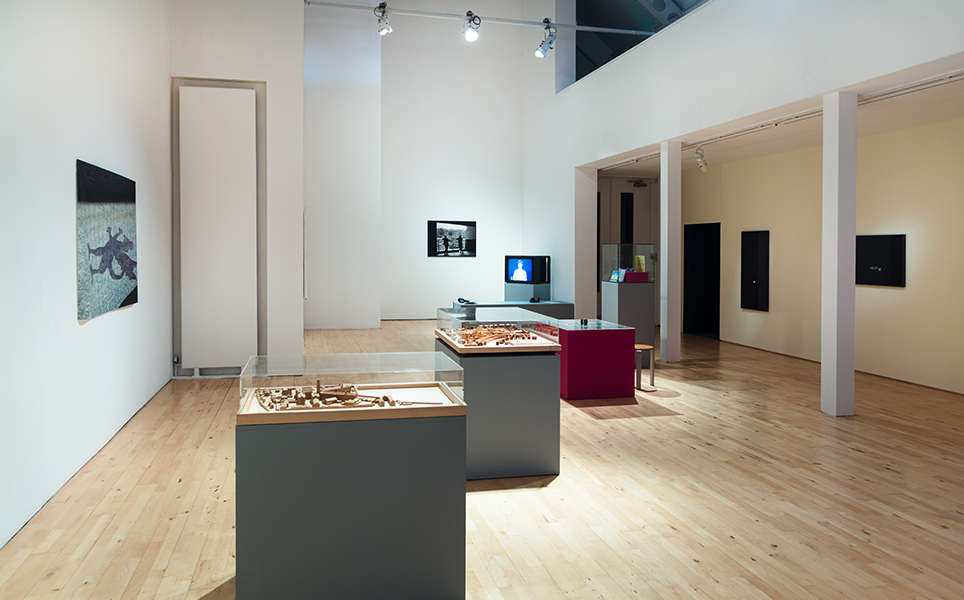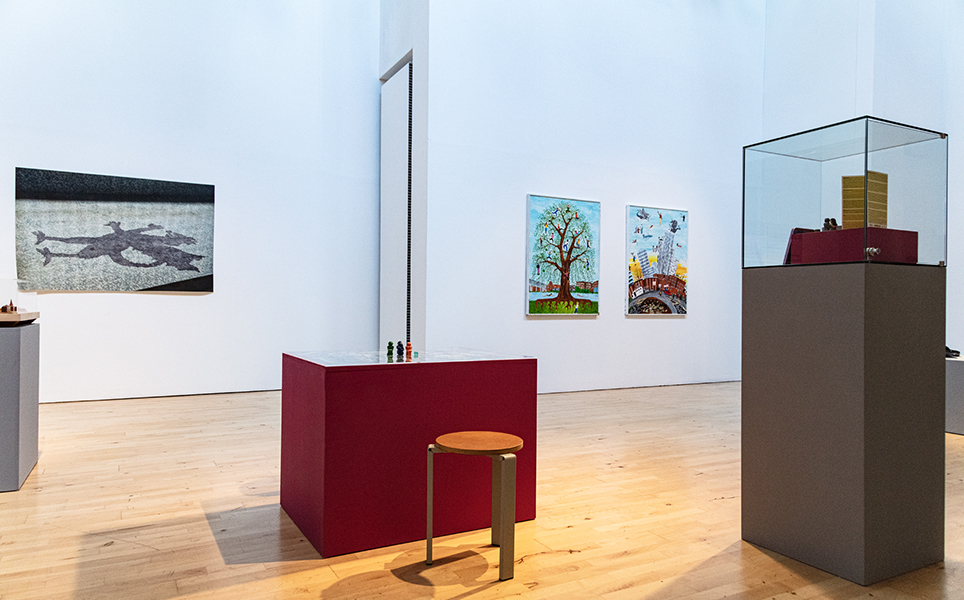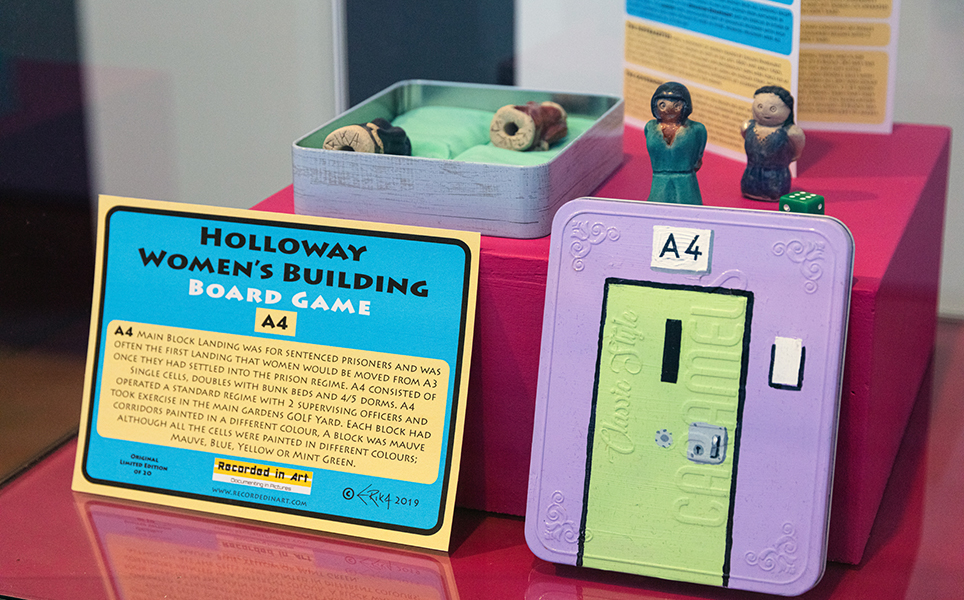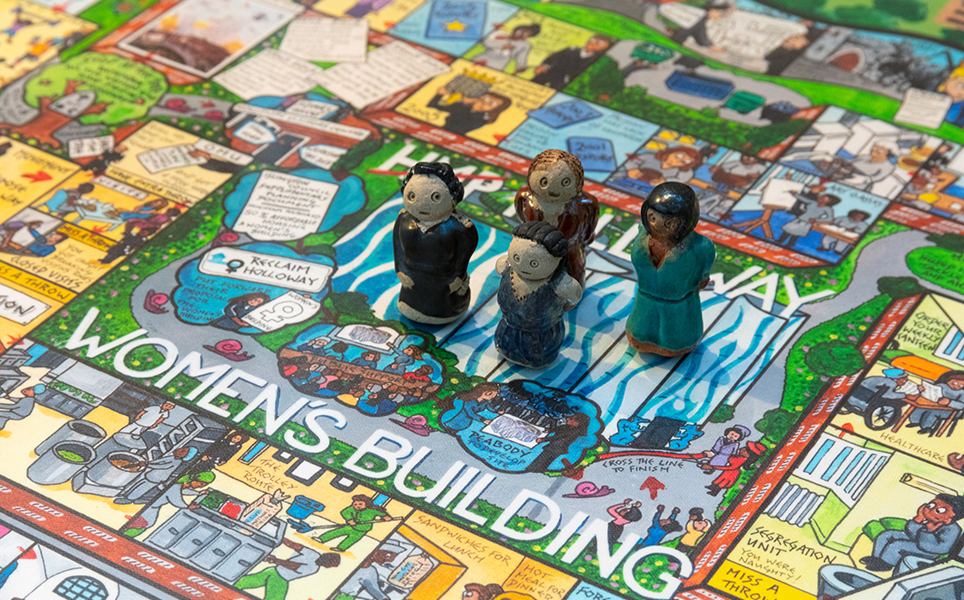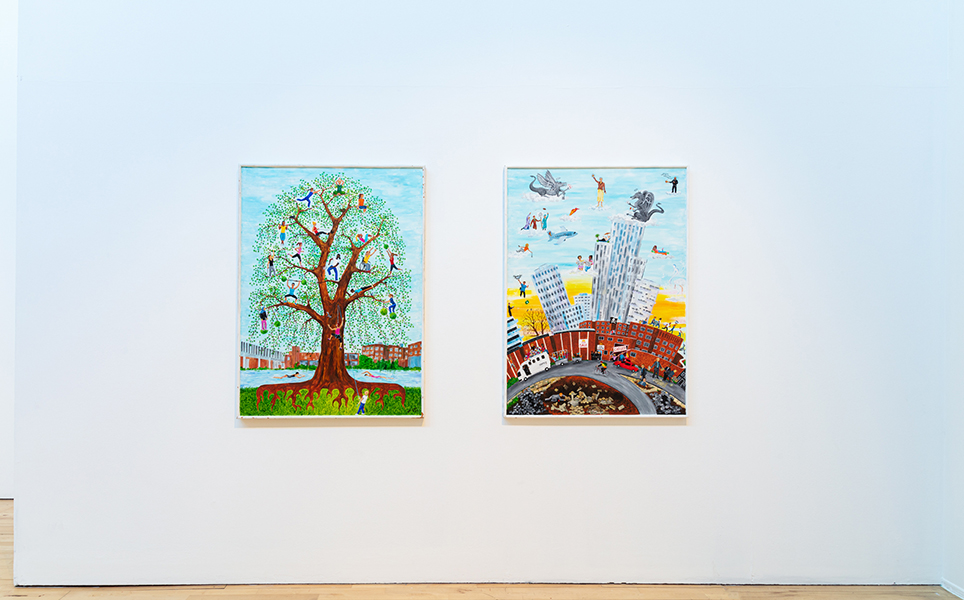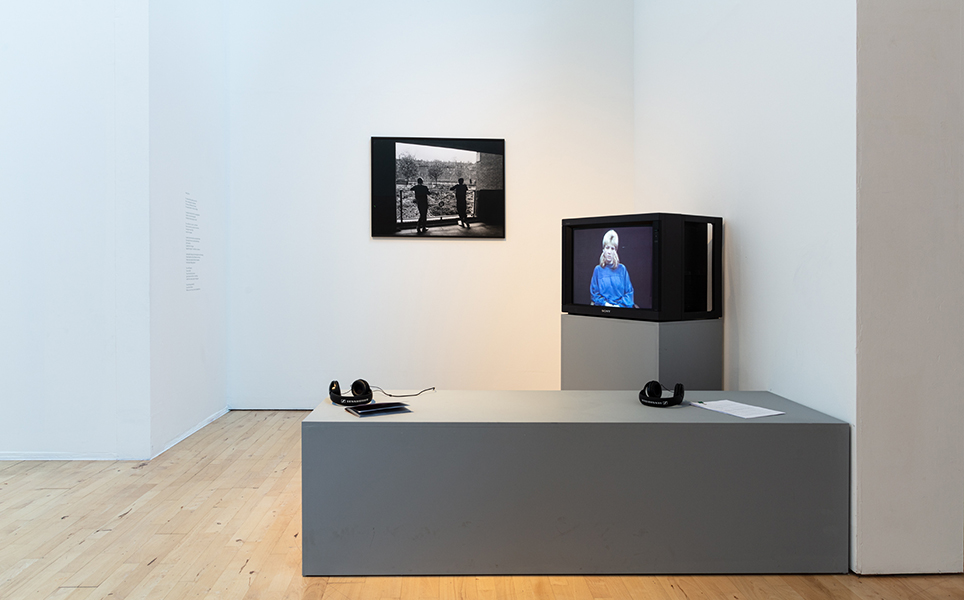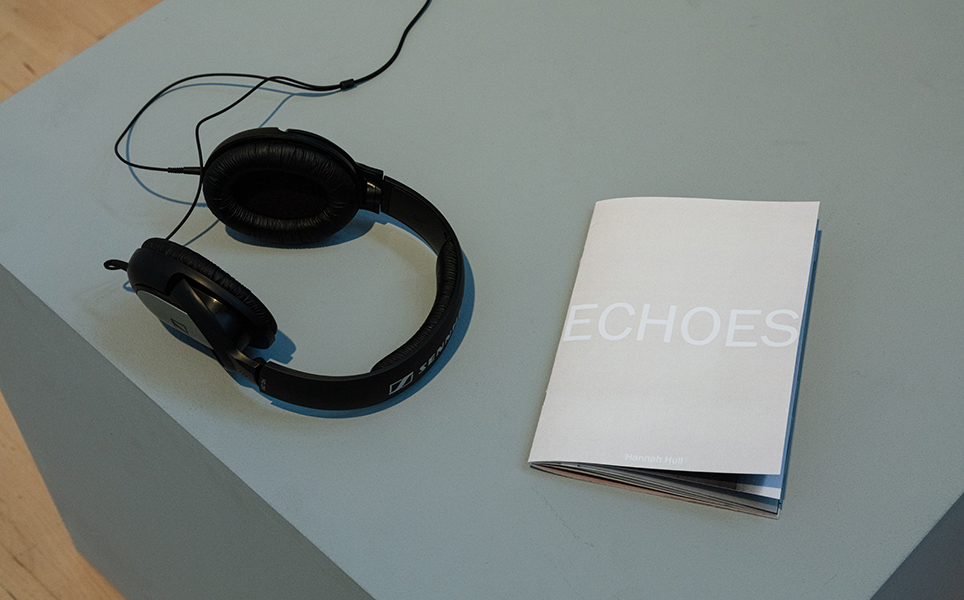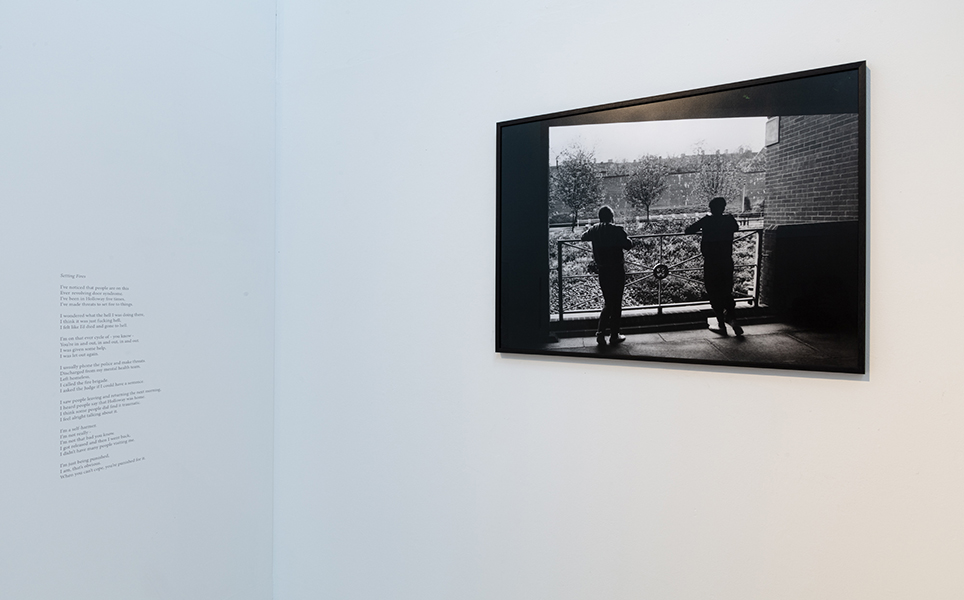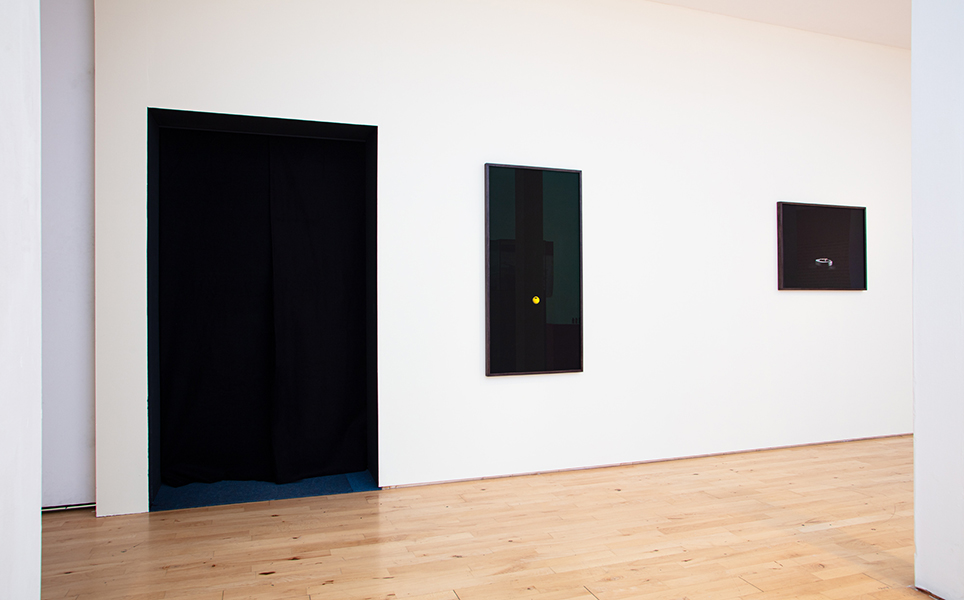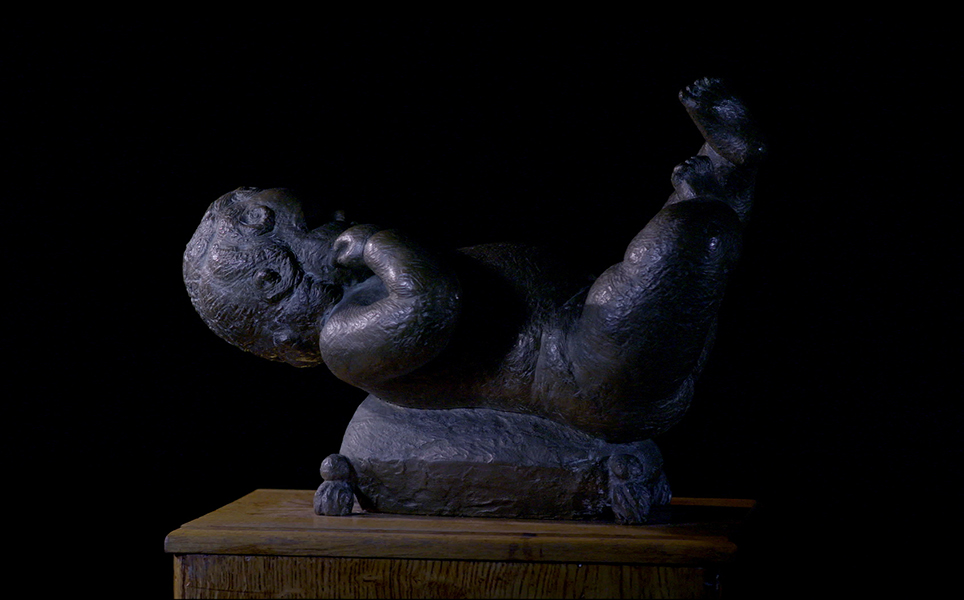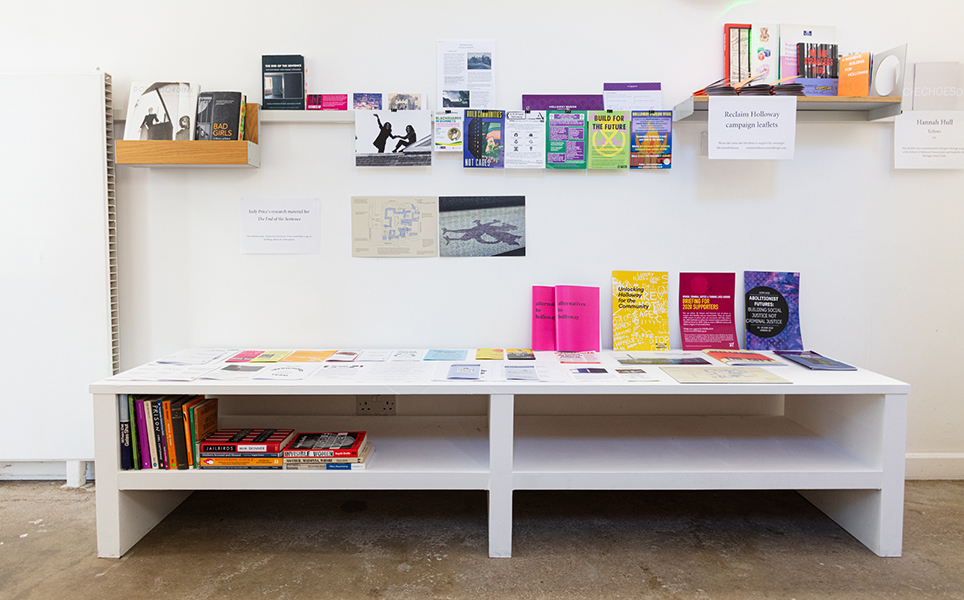The End of the Sentence presents artist Judy Price’s research on Holloway Women’s Prison and the impact of the criminal justice system on women. It features new work by Price, archival material, and works by other artists and writers invited by Price. The End of a Sentence develops Price’s research-led practice concerned with how artists can produce different ways of thinking about contested sites and engage with collective struggles.
Holloway Women’s Prison (1852-2016) was the largest women’s prison in Western Europe. Its prisoners included “some of the leading freedom fighters of our age, such as the suffragettes, but the vast majority were always imprisoned because of poverty and injustice, addiction and abuse”. Since its closure, Reclaim Holloway has been campaigning for a Women’s Building to be included in the site’s redevelopment. The Women’s Building would be a service hub helping vulnerable women stay out of the criminal justice system, a transformational space for the local community, and a positive legacy for the thousands of women held in HMP Holloway. The End of the Sentence draws on the networks, collaborations and relationships developed by Price through her involvement in Reclaim Holloway. The 10-acre former prison site was purchased by Peabody Trust in 2019, and there is a consultation currently underway to determine how the Women’s Building will be delivered.
The photographs by Price are from her time spent in the decommissioned prison building, which she lives directly behind, and her exploration of the intimate objects from the prison archived by Islington Museum. Phoenix Rising shows the griffin mosaic on the base of the swimming pool in HMP Holloway, which resembles the two stone griffins that stood outside the prison entrance. Photographs of hair and a fire plug offer a close examination of some of the less obvious traces of prison control – in the event of a fire in a cell at HMP Holloway, the small yellow plug was removed and a hose was inserted to blast water into the cell, before allowing the inmate to evacuate.
Examining archival material has played a central role in Price’s research. The architectural models and plans demonstrate the changes in the design of the prison before and after its 1970s redevelopment: how the emphasis shifted from punishment to rehabilitation and how the “intimate and everyday lives of incarcerated women are shaped and controlled by prison architecture”. An archival image photograph taken in 1985 shows two women looking out over the grounds of HMP Holloway from a prison balcony. A vinyl text lists some of the service and support organisations that operated in HMP Holloway at different points in time. This archival material and the new works presented here will form part of a long form film by Price that explores the multiple narratives and redrawn boundaries of Holloway Women’s Prison, and this has been awarded funding by Arts Council England and the Elephant Trust for its completion in the coming year.
There are a number of other artists and writers in the exhibition including two paintings and a game by Erika Flowers, who spent three years in HMP Holloway. The Gym Tree depicts one of the oldest trees in the Prison grounds, which Reclaim Holloway are in the process of applying for a Tree Protection Order to preserve. The climbers and swimmers represent the focus on physical activity which came to characterise prison life following its redevelopment. The Closure of HMP Holloway marked the prison’s closure, and shows land-grabbing politicians, protesters, and the artist on her bike. The Holloway Women’s Building Game playfully references the Suffragettes’ satirical Pank-a-Squith game (1909). While the end-goal for their game was votes for women, Flowers’ game leads the players to the forthcoming Women’s Building.
Time and Time Again – Women in Prison by Nina Ward & Women and Law Collective focuses on the lives of women incarcerated at HMP Holloway through interviews with ex-prisoners about their experiences and their re-assimilation into society. Katrina McPherson’s Symphony documents a five-week contemporary dance project at HMP Holloway involving over 200 women. Burning Salt’s Dirt EP was recorded following Hannah Hull’s artist residency at the Echoes of Holloway research project at Islington Museum in 2018, and draws on testimonies and transcripts from the prison. The colours of the walls, putty pink and pale cream, are taken from a Holloway Palette, devised by Hull at the same time. These two shades reference the colours of the mats on which the women were taught to clean, which are included in the booklet of poetry also on display in the exhibition. Carly Guest & Rachel Seoighe poems are made up of extracts of interviews with two women who were once imprisoned in Holloway. To construct the I-poems, Rachel and Carly selected the ‘I’ statements from the interview transcripts and arranged them, line by line, to form poems.
As part of The End of the Sentence, Price presents a new moving-image work online The Good Enough Mother. Commissioned in collaboration with Dorich House Museum, the piece features a bronze sculpture of a baby by Dora Gordine (1895-1991) acquired for the first Mother and Baby Unit at HMP Holloway in 1948. The soundtrack to the film explores the incarcerated pregnancy, drawing on transcriptions of interviews by midwife Dr Laura Abbott, as well as the work of forensic psychotherapist Pamela Windham Stewart. The script, developed with artist & writer Andrew Conio, is re-voiced by actors from Clean Break, a women’s theatre company that uses theatre to keep the subject of women in prison on the cultural radar and whose members have lived experience of the criminal justice system.
For the duration of the exhibition at Stanley Picker Gallery, the original bronze sculpture by Gordine, on loan from the National Justice Museum, will be on display at Dorich House Museum in Kingston, Gordine’s former studio home.
For further information on how you can contribute to the Peabody consultation for the Women’s Building, please visit: hollowayprisonconsultation.co.uk
To support the Reclaim Holloway campaign, please visit: reclaimholloway.mystrikingly.com
Judy Price
Judy Price is a London-based artist who works in photography, moving image, sound and installation. Her practice involves extensive field research where she often draws on images and sounds from archival sources, as well as from a sustained study of place to explore sites and locations that are interweaved and striated by multiple histories, economies and forces. She is course leader for MA Photography at Kingston School of Art and senior lecturer in BA Moving Image at the University of Brighton. Recent solo exhibitions include Mosaic Rooms, London; Danielle Arnaud Gallery, London; Wingsford Arts, Suffolk; Stiftelsen 3,14 and USF Centre, Bergen, Norway. Group exhibitions and screenings include Delfina Foundation, Imperial War Museum, Barbican, ICA and Whitechapel Gallery. Price is an active member of Reclaim Holloway.
Andrew Conio
Andrew Conio is a writer, artist, and scriptwriter. He has published on a range of subjects including philosophy, architecture, language, artist’s film, institutional critique, creativity and painting and is currently editing the volume, Occupy a People Yet to Come for the Open Humanities Press, and writing a monograph entitled The Anatomy of Money.
Nina Ward
Nina Ward has had a varied career working as a teacher, actress, filmmaker and lawyer. In 1986, she set up the Women and the Law Collective, which examined and explored the state of the UK legal system. Time and Time again was one of three short films made in 1986, which arose from Nina’s experiences of working as a lawyer and the participants’ experiences of prison. She holds an MA is in Social Anthropology from SOAS, University of London.
Hannah Hull
Hannah is a process-based, socially-engaged artist. She uses text, drawing, film, song, dialogue, and performance intervention. Burning Salt is a collaborative music project headed by Hannah. She is also currently a PhD Candidate (Practice-Based) at Institute for Creative and Cultural Entrepreneurship, Goldsmiths, University of London. She was artist-in-residence at the National Lottery Heritage-funded project Echoes of Holloway at Islington Museum in 2018-19.
Erika Flowers
Erika is an artist and illustrator. ‘Recorded in Art’ was a website initially set up to showcase and provide a platform for Erika’s journey through her prison sentence at HMP Holloway, which you can follow on her Instagram @postcardsfromprisondiary. An active member of Reclaim Holloway, she sits on the board for the Community Plan For Holloway (CPFH) and the Steering Group of the National Criminal Justice Arts Alliance.
Katrina McPherson
Having trained as a dancer and choreographer at Laban, Katrina works in screen dance. Katrina was a director of arts programmes for BBC, Scottish Television and Channel Four and co-director of Goat Media Productions from 2001-2015. Her works are held in collections including Lux Artists’ Moving Image UK and the British Council. Katrina is an Associate Artist at Dance Base in Edinburgh and a Dance North Associate Artist.
Carly Guest & Rachel Seoighe
Dr Carly Guest is a senior lecturer in Sociology at Middlesex University, and Dr Rachel Seoighe is a lecturer in Criminology at the University of Kent. Together they have developed an innovation, emotion-led methodology to explore photographs of the decommissioned Holloway Prison building. Carly and Rachel are active members of Reclaim Holloway.
The title of the exhibition is borrowed from The End of the Sentence: Psychotherapy with Female Offenders, ed. Pamela Windham Stewart and Jessica Collier, Routledge, 2018. The editors have generously given the artist permission to use the title.
Caitlin Davis, Bad Girls: A History of Rebels and Renegades, John Murray (2018)
Laura Abbott, The Incarcerated Pregnancy: An Ethnographic Study of Perinatal Women in English Prisons, unpublished thesis (2018) and Pamela Windham Stewart in various unpublished writing and recorded conversations between Stewart and Price.
Carly Guest & Rachel Seoighe, Familiarity and strangeness: Seeing everyday practices of punishment and resistance in Holloway Prison, Punishment & Society (2019)
